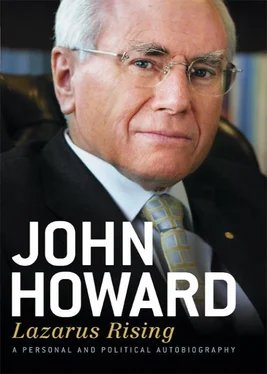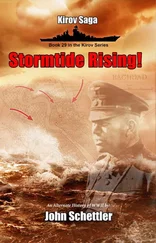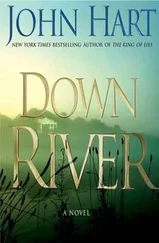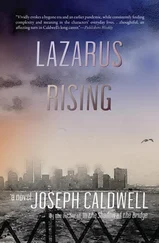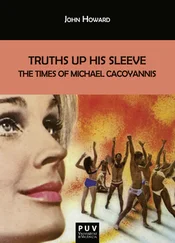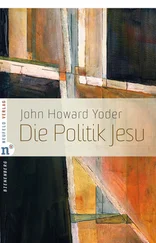Although our lives revolved very much around the church, religion and theology were rarely discussed at home. My father was a very infrequent churchgoer. He was a believer, but not a participant. My parents belonged to a generation of Australians which did not talk a lot about religion, even if they held to their faith. Then again, it was an era in which personal feelings generally, and not just about religion, tended to be internalised. The willingness of today’s generation, especially men, to speak more openly about their feelings is something to be welcomed. This is an area where the good old days were definitely not better.
We grew up at a time when church attendance was much higher, and when a moral consensus flowing from the Judaeo-Christian ethic held a largely unchallenged place in Australian society. The influence of the Christian religion, even amongst those who privately repudiated it, was both strong and pervasive.
The fundamentals of Christian belief and practice which I learned at the Earlwood Methodist Church have stayed with me to this day, although I would not pretend to be other than an imperfect adherent to them. I now attend a local Anglican church, denominational labels within Christianity meaning nothing to me. Any religious belief requires a large act of faith. To many people, believing in something that cannot be proved is simply a step too far. To me, by contrast, human life seems so complex and hard to explain yet so extraordinary that the existence of God has always seemed to offer a better explanation of its meaning than any other.
The extended Howard family, given that Dad had been one of nine children, was quite large. My paternal grandmother, Jane Falconer Howard, lived with one or other of her daughters for the last years of her life. Most Sunday afternoons involved visits to my grandmother. She was a stoic woman, confined to a wheelchair from the age of 62 as a result of rheumatoid arthritis. Deeply religious, she was in every way the matriarch of the family until her death in 1953, when I was aged 14. I have quite happy recollections of extended Howard family gatherings for special occasions, which brought me in touch with my numerous cousins.
A great Howard family ritual was observance of Bonfire Night, strictly speaking Empire Day, 24 May, that date being marked because it had been Queen Victoria’s birthday. We always had large amounts of fireworks, built huge bonfires, had a half-day school holiday and enjoyed ourselves immensely. Like all Western societies Australia has become a nanny state on activities such as this. As a consequence today’s children are denied much innocent fun. I think that fireworks prohibitions are ridiculous.
My parents were quiet, even shy people whose total focus was the care and upbringing of their four children. They wanted us to have better educational opportunities than they had enjoyed. Doing homework or studying for university exams took precedence over everything else at home. My mother and father would frequently forgo listening to the radio — after the ABC news of course — so that one or more of their children could study undistracted. Often Stan would be at his desk in his bedroom, and Bob and I would be working on the dining-room table. They wanted their children to succeed, and did all in their power to bring that about.
There was nothing self-important or pompous about either of my parents. They actively discouraged such character traits in their children and were scornful of anyone who exhibited what their generation called ‘side'. We were taught to be polite to people doing menial tasks. My mother rebuked me at the pictures one night because I had used my foot to push a sweet wrapper towards a cleaning lady who was collecting rubbish during interval. She said that I should have picked it up and handed it to her.
Due to the age difference, I had a minor form of hero worship towards my two eldest brothers, Wal and Stan. At the age of 15, I was absolutely devastated when Wal was not elected captain of the church cricket team. This was because he took it for granted, owing to his seniority, that he would be elected. He had not bothered to organise his numbers. I thought the decision of the team was most unfair, and it left me feeling upset and angry for weeks. I found it hard to accept that the other members of the team would not all want Wal as captain. It also taught me a lesson about ballots, which I have never forgotten.
I attended Earlwood Public School, the local primary school, and won admission to Canterbury Boys’ High School, then one of the nine selective high schools in Sydney. Its catchment area was the St George and Canterbury-Bankstown districts, a large chunk of southwestern Sydney.
Earlwood Primary School reflected the locality which it serviced. About half of my final-year class had fathers who were tradesmen, and in most other cases they worked in banks, insurance companies or utilities, with just two or three in small business.
In my last year at Earlwood, I had a wonderful teacher, Jack Doherty. He constantly fed my interest in current affairs and conducted plenty of additional question periods on the news of the time. A very fine ABC Radio program called The World We Live In, narrated by H.D. Black (later Sir Hermann and Chancellor of Sydney University) and which extensively covered world affairs, was a regular part of our class work. This was in 1951, and the Korean War was still raging. One of the hotly debated issues then was the sacking of General Douglas MacArthur by President Harry Truman. This was a big call by Truman. MacArthur was an iconic World War II figure who had established his headquarters in Brisbane after being pushed out of the Philippines by the Japanese. From there he led the Allied fightback, which ended in victory. When the Korean War started in June 1950 with communist North Korea invading South Korea, MacArthur was the Supreme Allied Commander in the Pacific.
He clashed with Truman over the conduct of the Korean War, wanting to carry the fight against the Chinese, who had come in on the side of the North, over the North Korean border into China itself. Truman opposed this and when their differences could not be resolved, Truman, as Commander-in-Chief, sacked him. I followed these developments avidly.
At the end of primary school, when I was 12, I made my first public speech, at the school presentation day at the local Mayfair Theatre in Earlwood. The headmaster was retiring, and I gave a short speech of thanks on behalf of the teachers and pupils, and presented him with a watch. I was nervous, but it seemed to go well. My father and mother were both there and appeared very proud. Dad was so pleased he gave me my first fountain pen to mark the occasion. I needed one for high school.
My interest in politics mounted during my years at Canterbury Boys’ High School, where my active participation in school debates and as a member of the school’s debating team in the Combined High Schools’ (CHS) competition laid the groundwork for such speaking skills as I was able to bring with me into public life years later. I learned then the great value of speaking ‘off the cuff', because a significant part of the debating curriculum required me to speak in an impromptu fashion on subjects of which I had no prior notice. It was marvellous training. It was invaluable during my early years in parliament when, at a moment’s notice, I was able to respond to the whip’s call and jump into a debate.
The immense merit of formal debating is the discipline of having to articulate the reasons for holding a particular opinion. Years later, in public life, I learned that it was not enough simply to assert a strongly held view. Logically arranged arguments, explaining why that view was held, were crucial. My friend and long-time advisor Grahame Morris would often say to me, when discussing an announcement, ‘Boss, what’s the why?’ In other words, he wanted to hear my explanation.
Читать дальше
